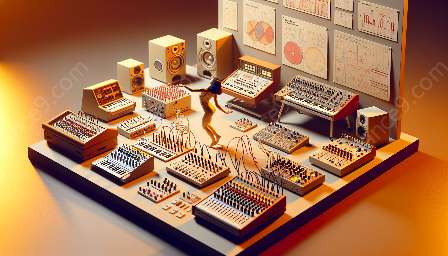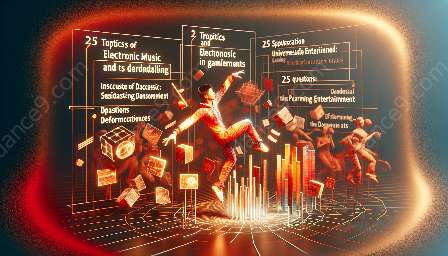Electronic music sampling has become an integral part of the dance and electronic music landscape, but it is important for artists and producers to understand the legal implications and considerations surrounding this practice. In this comprehensive guide, we will explore the various legal aspects of electronic music sampling, including copyright laws, fair use, and the importance of licensing. By delving into these topics, you will gain a better understanding of how to navigate the complex legal terrain while creating and producing electronic music.
Copyright Laws and Electronic Music Sampling
One of the primary legal considerations in electronic music sampling is copyright law. When a music producer or artist samples a portion of a copyrighted song, they are essentially using someone else's intellectual property. It is crucial to understand that copyrighted material cannot be used without permission, as this constitutes copyright infringement.
In the context of electronic music, sampling often involves taking a segment of an existing song and incorporating it into a new composition. This practice raises important questions about the rights of the original copyright holder and the legal obligations of the sampler. To avoid potential legal issues, it is essential for electronic music producers to obtain clearance for any samples they use in their compositions.
Fair Use in Electronic Music Sampling
While copyright law governs the use of sampled material, the concept of fair use provides an exception that allows for certain uses of copyrighted material without obtaining permission from the copyright owner. Fair use is a crucial legal principle that enables artists and producers to incorporate copyrighted material into their work for purposes such as criticism, commentary, or parody.
However, it is important to note that fair use is a complex and often subjective legal doctrine. In the context of electronic music sampling, determining whether a particular use of a sample falls under fair use can be challenging. Factors such as the amount of the work used, the purpose of the use, and the potential impact on the market for the original work must be carefully considered when assessing fair use in electronic music sampling.
Licensing in Electronic Music Sampling
Obtaining proper licenses for sampled material is a fundamental aspect of navigating the legal landscape of electronic music sampling. Music producers and artists must secure the appropriate licenses from the copyright holders of the sampled material in order to use it legally in their compositions. There are different types of licenses that may be required, depending on the nature of the sampling and the specific rights associated with the original work.
Clearing samples through licensing involves negotiating with copyright owners or their representatives to obtain the necessary permissions and rights to use the sampled material. This process can involve complex legal agreements and compensation arrangements, and it is important for electronic music creators to be well-versed in the intricacies of music licensing to ensure compliance with copyright law.
Legal Compliance and Innovation
Understanding the legal considerations in electronic music sampling is essential for fostering a culture of compliance and innovation in the dance and electronic music industry. By adhering to copyright laws, respecting fair use principles, and obtaining proper licenses, creators can not only avoid legal conflicts but also contribute to the sustainability of the music industry.
Moreover, as electronic music continues to evolve and push the boundaries of creative expression, a nuanced understanding of legal considerations can empower artists and producers to explore new artistic possibilities while respecting the intellectual property rights of others. Embracing legal compliance can ultimately contribute to a thriving and ethical ecosystem within the dance and electronic music community.
Conclusion
In conclusion, legal considerations in electronic music sampling play a crucial role in shaping the practices and creativity of artists and producers within the dance and electronic music industry. By navigating the complexities of copyright laws, fair use, and licensing, creators can ensure that their use of sampled material is both ethically and legally sound. As the electronic music landscape continues to evolve, a robust understanding of legal considerations will enable artists to innovate while upholding the integrity of intellectual property rights.






























